| Title | Trained modulation of sensorimotor rhythms can affect reaction time. |
| Publication Type | Journal Article |
| Year of Publication | 2011 |
| Authors | Boulay, CB, Sarnacki, WA, Wolpaw, J, McFarland, DJ |
| Journal | Clinical neurophysiology : official journal of the International Federation of Clinical Neurophysiology |
| Volume | 122 |
| Pagination | 1820–1826 |
| Date Published | 09/2011 |
| ISSN | 1872-8952 |
| Keywords | brain-computer interface, EEG, Reaction Time |
| Abstract | OBJECTIVE:
Brain-computer interface (BCI) technology might be useful for rehabilitation of motor function. This speculation is based on the premise that modifying the EEG will modify behavior, a proposition for which there is limited empirical data. The present study examined the possibility that voluntary modulation of sensorimotor rhythm (SMR) can affect motor behavior in normal human subjects.
METHODS:
Six individuals performed a cued-reaction task with variable warning periods. A typical variable foreperiod effect was associated with SMR desynchronization. SMR features that correlated with reaction times were then used to control a two-target cursor movement BCI task. Following successful BCI training, an uncued reaction time task was embedded within the cursor movement task.
RESULTS:
Voluntarily increasing SMR beta rhythms was associated with longer reaction times than decreasing SMR beta rhythms.
CONCLUSIONS:
Voluntary modulation of EEG SMR can affect motor behavior.
SIGNIFICANCE:
These results encourage studies that integrate BCI training into rehabilitation protocols and examine its capacity to augment restoration of useful motor function.
|
| URL | http://www.ncbi.nlm.nih.gov/pubmed/21411366 |
| DOI | 10.1016/j.clinph.2011.02.016 |

